This weekend I was faced with a long list of freezing-temps-are-coming chores to tackle in the garden. Rather than my usual approach of thinking about each of them and figuring out which were highest priority, then figuring the amount of effort involved in each before making a decision on where to start, I just chose the one I was most excited about.
I decided to move this beautiful bamboo from its temporary spot (planted at least two years ago) to someplace where it would contribute more to the garden. What I found out was "just one thing" isn't really possible in the garden, as this task required an ever-growing list of additional tasks.
I did have one decision to make before I got started: was I going to move the entire plant, or just take half of it out?
It's looking so good back here, providing great contrast to the variegated 'Shiroshima' bamboo next to it as well as the smaller-leaved 'Rufa' in the background, the more I looked at it the more I was leaning toward making a division instead of moving the whole plant.
Of course that requires a bit more work, but I'll get to that part in a minute.
Let's prepare the new planting hole first, to minimize the time that the soon-to-be-dug-up plant will be out of the ground. The trouble is, there is something in that spot already:
It's the Miscanthus 'Gracillimus' behind the white variegated Pleioblastus fortunei bamboo, and under the arching black bamboo (Phyllostachys nigra). The nigra shades this grass too much, so it's weak and floppy, and has to go.
First a trim:
It was weird doing this to a green ornamental grass, as I usually don't cut them down until March or so.
That was the first additional task. The second was to dig out the grass:
Although it went easier than expected (probably because the plant was relatively weak), it wasn't as easy as just digging a planting hole.
Of course there was a bamboo rhizome in the way, right?
So that was another unexpected step, removal of that rhizome.
With the destination now ready to receive a plant, I went back to do the plant in question (Indocalamus latifolius 'Solidus'):
Of course, trying to find the dividing line to cut it in half was tricky, as there were so many culms:
With the help of a pole laid in there to help keep the culms separated, then by tying each half of the plant up so two separate bundles were formed, getting half of the plant out was really not that difficult.
Which half to take though? I decided that the side nearest the other bamboo made the most sense to remove:
You almost can't tell I did anything to the original plant...
...except that there is some extra room between the two now.
The division had lots of rhizomes on the one side (the outside of the original clump)...
...so I planted it a little further back than I wanted with the rhizomes toward the front, knowing that new culms would be coming up in this area next year, inching the plant in this direction.
Looks good, doesn't it?
It will do much better here than the sun-loving grass did, as shade or partial shade is perfect for this bamboo.
So the single task of moving this plant turned into a multi-step process: chopping, prying, digging -- and let's not talk about having more grasses to pot up now, which requires that I mix up more potting soil...
I left that for another day though.
Does anybody else have garden tasks that snowball into bigger projects, or is it just me?
.



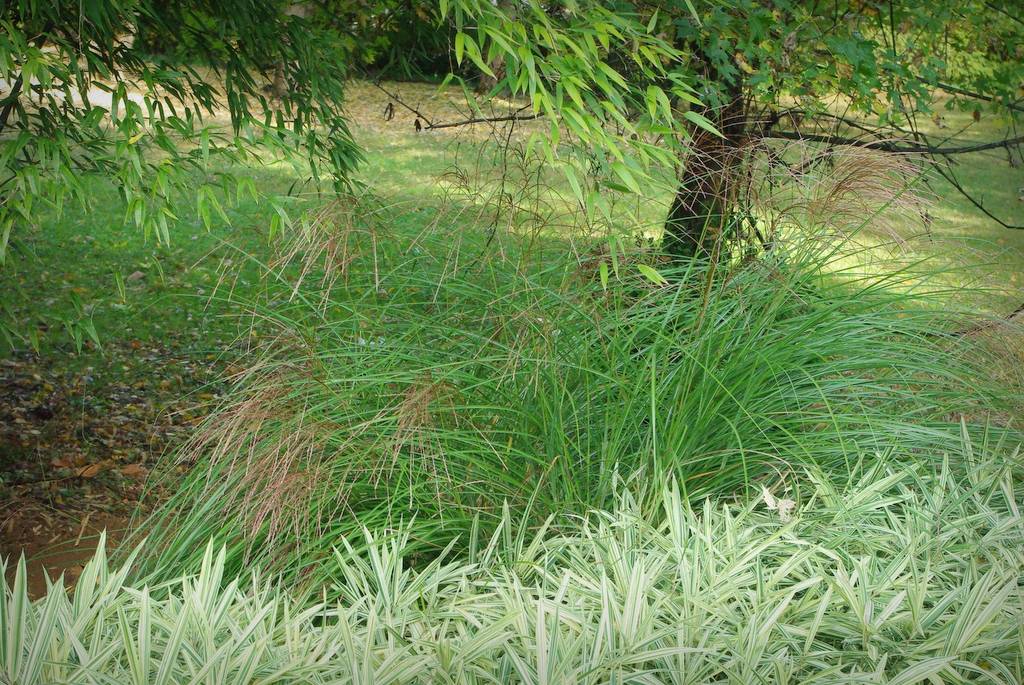

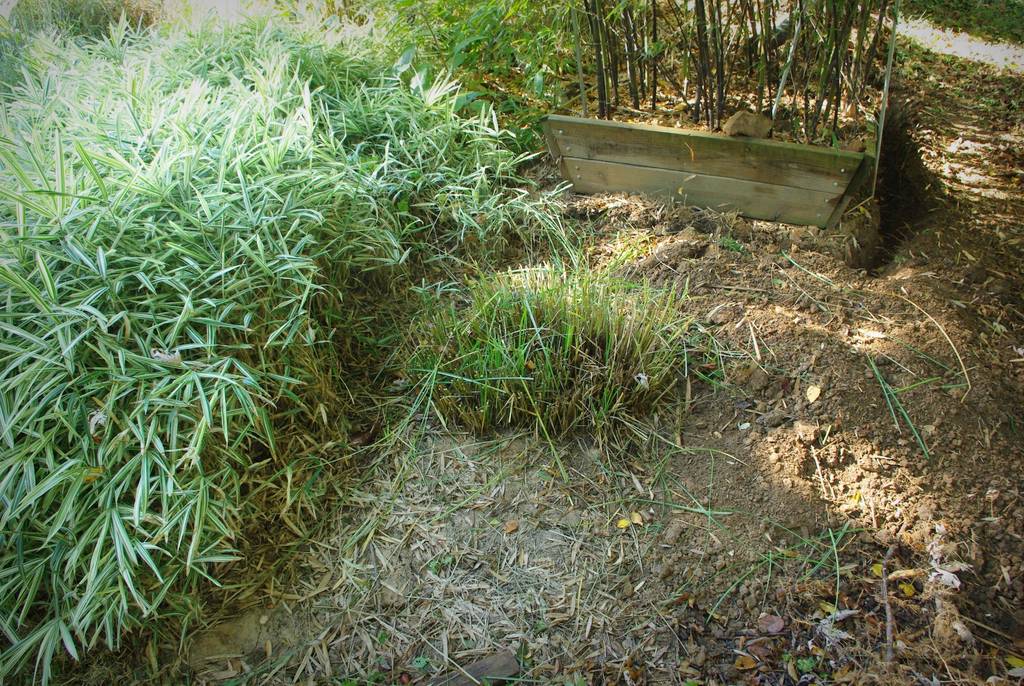
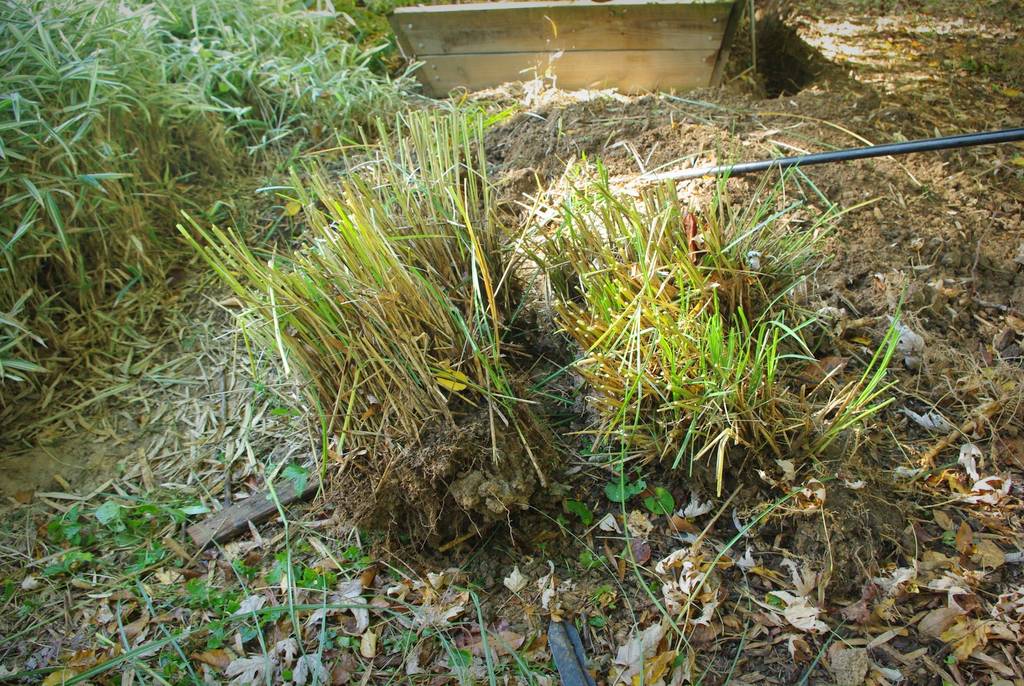

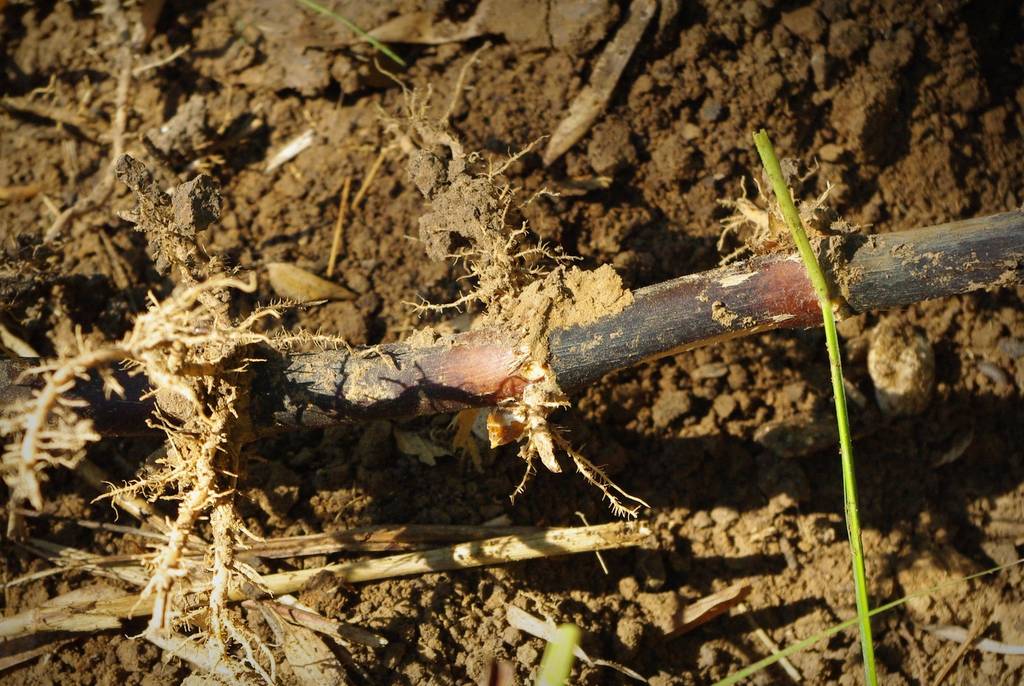

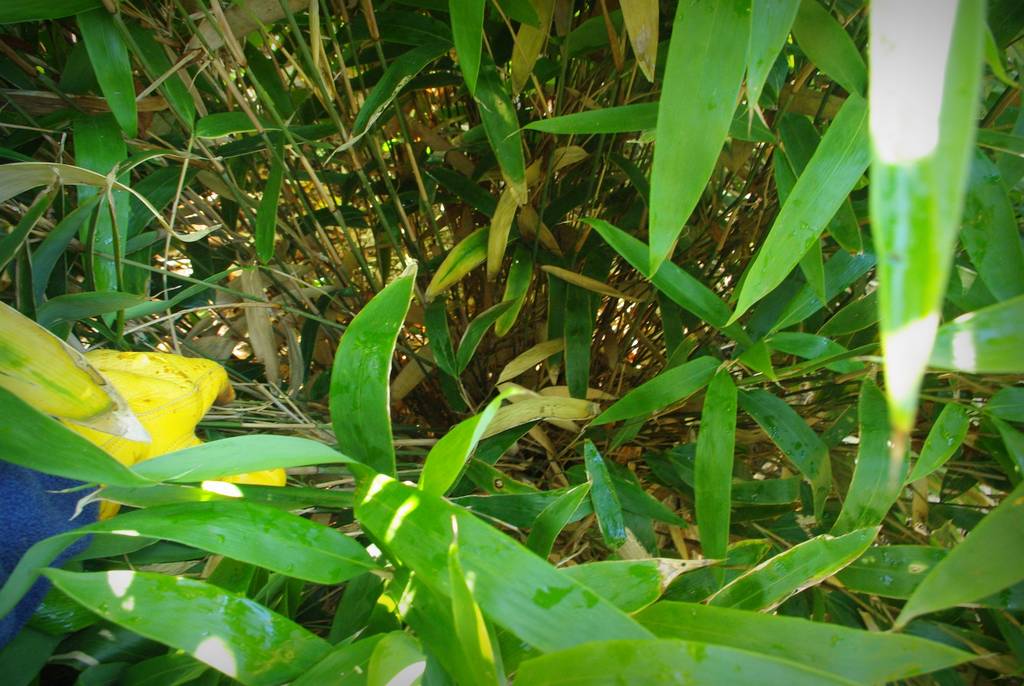
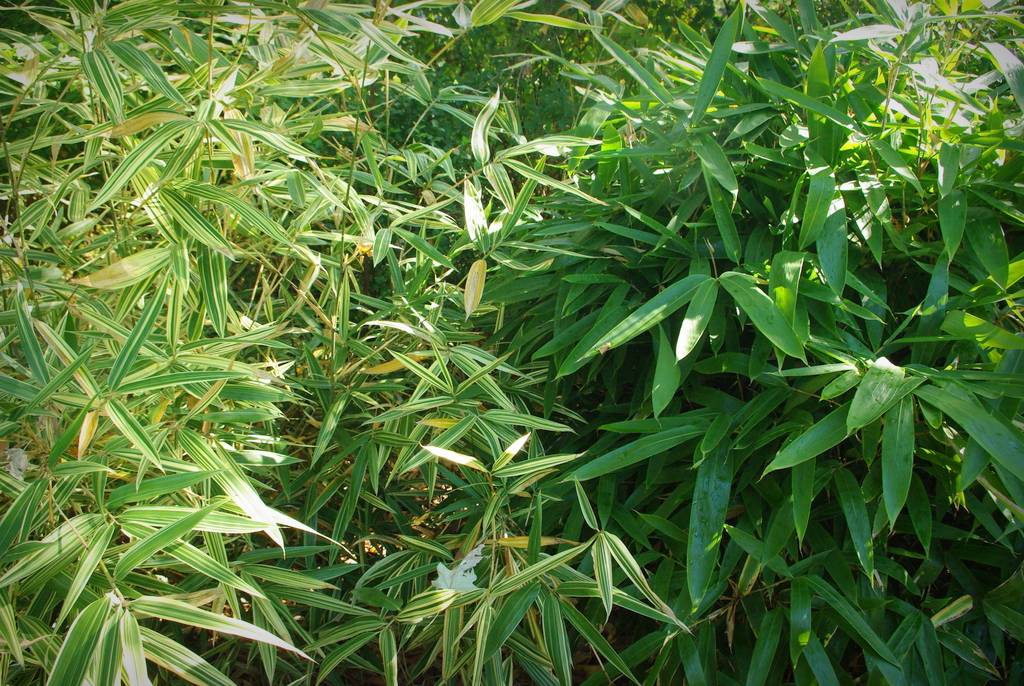
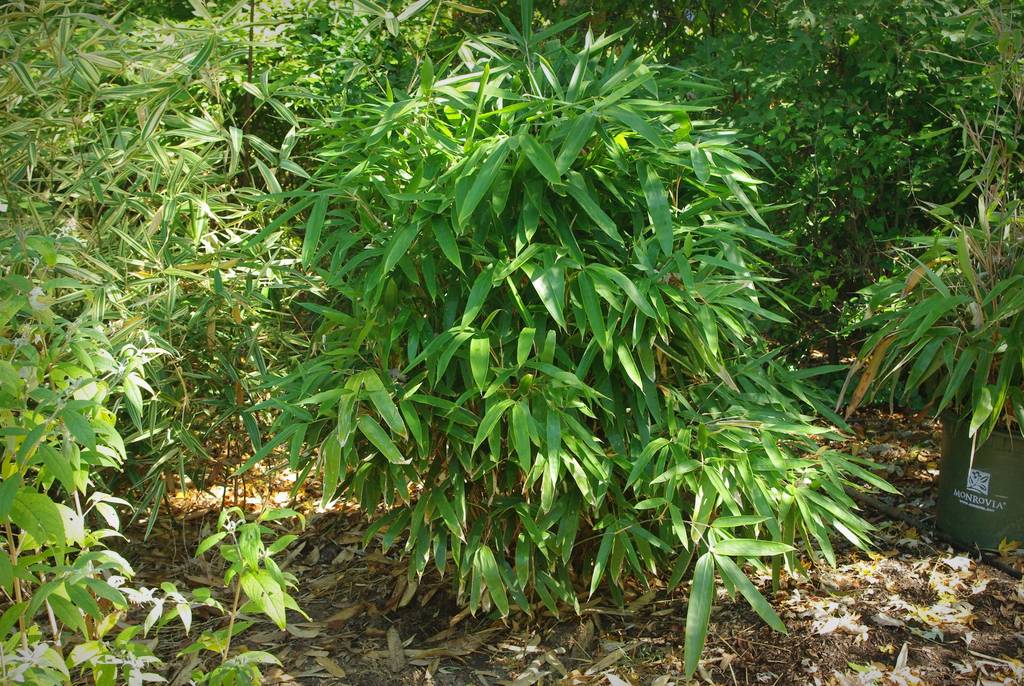




What did you use to divide the clump? A saw? Or just a spade? It doesn't look like the rhizomes are too thick.
ReplyDeleteI like what you did. The final photo is spectacular.
Gerhard: I used my trusty breaker bar with the chisel end nice and sharp, and just cut through the middle of the clump, then cut around the edges a bit and pried up. These rhizomes are quite thin, so it was not a difficult job (compared to some).
ReplyDeleteIt seems that the rhizomes of running bamboos are much easier to cut that the solid mass of wood that clumping bamboos produce.
ReplyDeleteGerhard: That's true, until your running bamboo planting has been in the ground for 10+ years in a relatively small space. Then you have the block of wood issue there too.
ReplyDelete